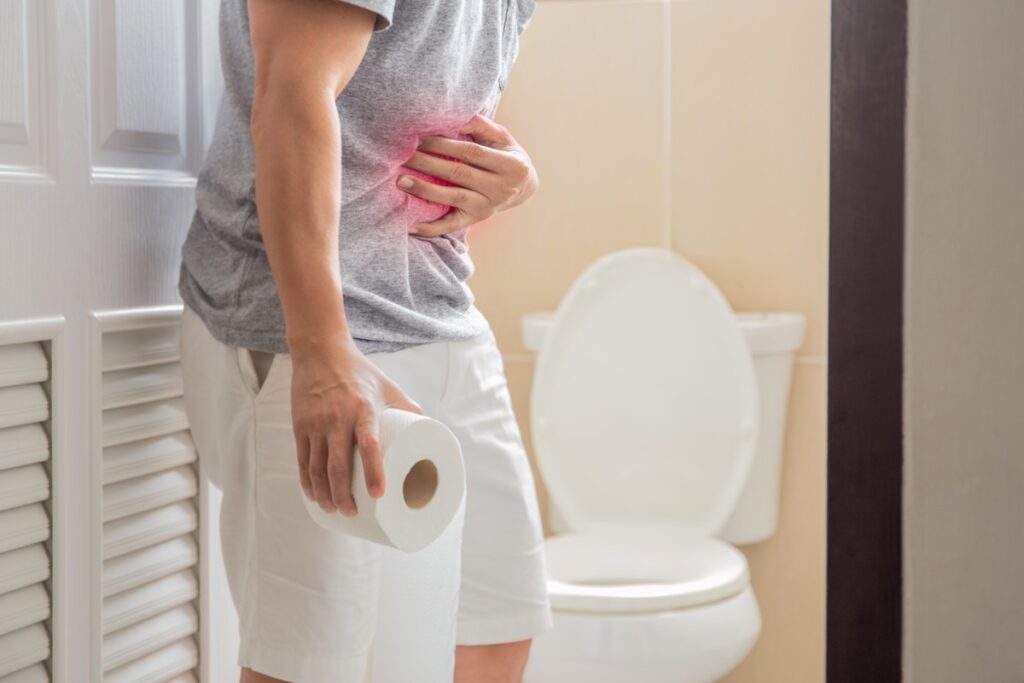Hemorrhoids, those bothersome swollen veins that can cause discomfort, can often be managed and even prevented through a balanced combination of diet and exercise. If you’re looking to proactively address hemorrhoid concerns or seeking relief from existing symptoms, let’s dive into the powerful role that diet and exercise play in promoting your well-being.
Diet: A Fiber-Rich Delight
Why Fiber Matters Fiber is your gut’s best friend when it comes to preventing and managing hemorrhoids. A diet high in fiber promotes regular bowel movements, reduces the risk of constipation, and minimizes the need for straining during bathroom visits – a significant contributor to hemorrhoid development.
Filling Your Plate with Fiber Load up on whole grains like brown rice, quinoa, and whole wheat bread to boost your fiber intake. Fruits such as apples, berries, and pears, along with vegetables like broccoli, spinach, and Brussels sprouts, are excellent sources of dietary fiber. Including legumes like lentils and beans can also add a fiber-rich punch to your meals.
Stay Hydrated Pairing your fiber intake with proper hydration is essential. Water softens stools and makes them easier to pass, reducing the risk of straining and the development of hemorrhoids. Aim for at least eight glasses of water a day and adjust your intake based on your activity level and climate.
Exercise: Movement for Relief
Exercise’s Digestive Benefits Regular physical activity benefits not only your cardiovascular health but also your digestive system. Exercise stimulates intestinal activity, helping food move through your digestive tract efficiently. This can prevent constipation, a major culprit behind hemorrhoid formation.
Engage in Aerobic Activities Aerobic exercises such as walking, jogging, swimming, and cycling are particularly beneficial for maintaining healthy bowel movements and preventing constipation. Aim for at least 30 minutes of moderate aerobic exercise most days of the week.
Yoga and Stretching Yoga and stretching routines can also work wonders for preventing hemorrhoids. Gentle yoga poses and stretches improve circulation, alleviate stress (which can contribute to digestive issues), and promote overall relaxation.
Finding Balance and Mindful Eating
Avoid Overeating Overeating can lead to added pressure on the pelvic area, potentially exacerbating hemorrhoid discomfort. Practice mindful eating, savoring your food and stopping when you feel comfortably satisfied.
Limit Processed Foods Processed foods high in refined sugars and unhealthy fats can lead to digestive issues and constipation. Opt for whole, unprocessed foods to support a healthy digestive system.
Listening to Your Body
Remember that every individual’s body is unique. While a fiber-rich diet and regular exercise generally contribute to better digestive health and reduced risk of hemorrhoids, it’s essential to pay attention to your body’s signals. If you experience discomfort or persistent symptoms, consult a healthcare professional for personalized guidance.
By nourishing your body with a fiber-rich diet and engaging in regular exercise, you’re taking proactive steps toward preventing and managing hemorrhoids. Your efforts toward maintaining a healthy lifestyle can go a long way in promoting your overall well-being and comfort.
